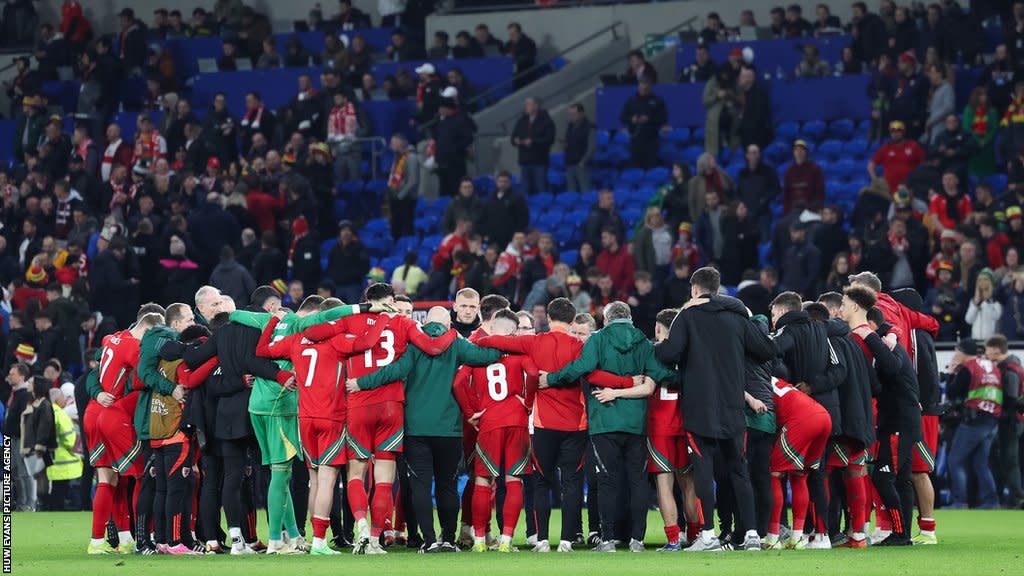FAW posts record £36.2m revenues after Wales' 2022 World Cup qualification

The Football Association of Wales (FAW) posted record revenues last year.
For the financial year to the end of June 2023, the FAW's revenues rose by 56% to £36.2m thanks primarily to Wales qualifying for the 2022 World Cup.
Having invested in grassroots football via the Cymru Football Foundation, the FAW's operating losses were £715,243.
But the FAW's investment portfolio - worth £17.6m - helped it achieve a post-tax profit of £173,432, following a loss of £100,659 a year earlier.
The FAW's chief financial officer John Young described the accounts as "positive", while president Steve Williams said the governing body was in a "healthy" financial state.
Qualifying for the World Cup earned about £9m for the FAW, with that money split between the squad and management, tournament costs in Qatar and investments in grassroots football in Wales.
Since it was established in 2022, the Cymru Football Foundation - the FAW's charitable arm - estimates it has spent more than £9m on grassroots and community projects around Wales.
That has been a priority for FAW chief executive Noel Mooney since his appointment in 2021. Before World Cup qualification was secured, he said Wales was "millions and millions of miles off where we need to be" with regards to grassroots facilities.
Qualifying for Qatar provided a significant boost in that respect, while other sources of income in the financial year ending June 2023 included TV and radio deals worth £8.2m, £1.3m from Sport Wales and £5.6m from other governing bodies.
During that period, the merger between the FAW and FAW Trust saw staff numbers increase from 79 to 126. As a result staffing costs rose from £3.5m to £6.3m.
Mooney's salary was £233,700, with accounts reflecting for the first time a full financial year with the Irishman in the job.
The figure for his salary the previous year, ending June 2022, was £195,279 and included a period when his predecessor Jonathan Ford was still in post.
Qualifying for Euro 2024 would have secured a further boost of at least £8m for future FAW accounts, but Wales missed out after losing to Poland in their play-off final last month.
According to FAW president Williams, however, qualification was not a necessity from a financial point of view.
"The association has carried out a detailed exercise to ascertain the risk of any future cashflow issues, adopting a worst-case scenario," Williams wrote in notes accompanying the accounts.
"The result shows that the association maintains a strong cash position throughout the period to January 2025 and generates sufficient cash from operations to pay its liabilities as they fall due.
"This, together with investments, enables the association to conclude that the impact on its finances will not be significant."
